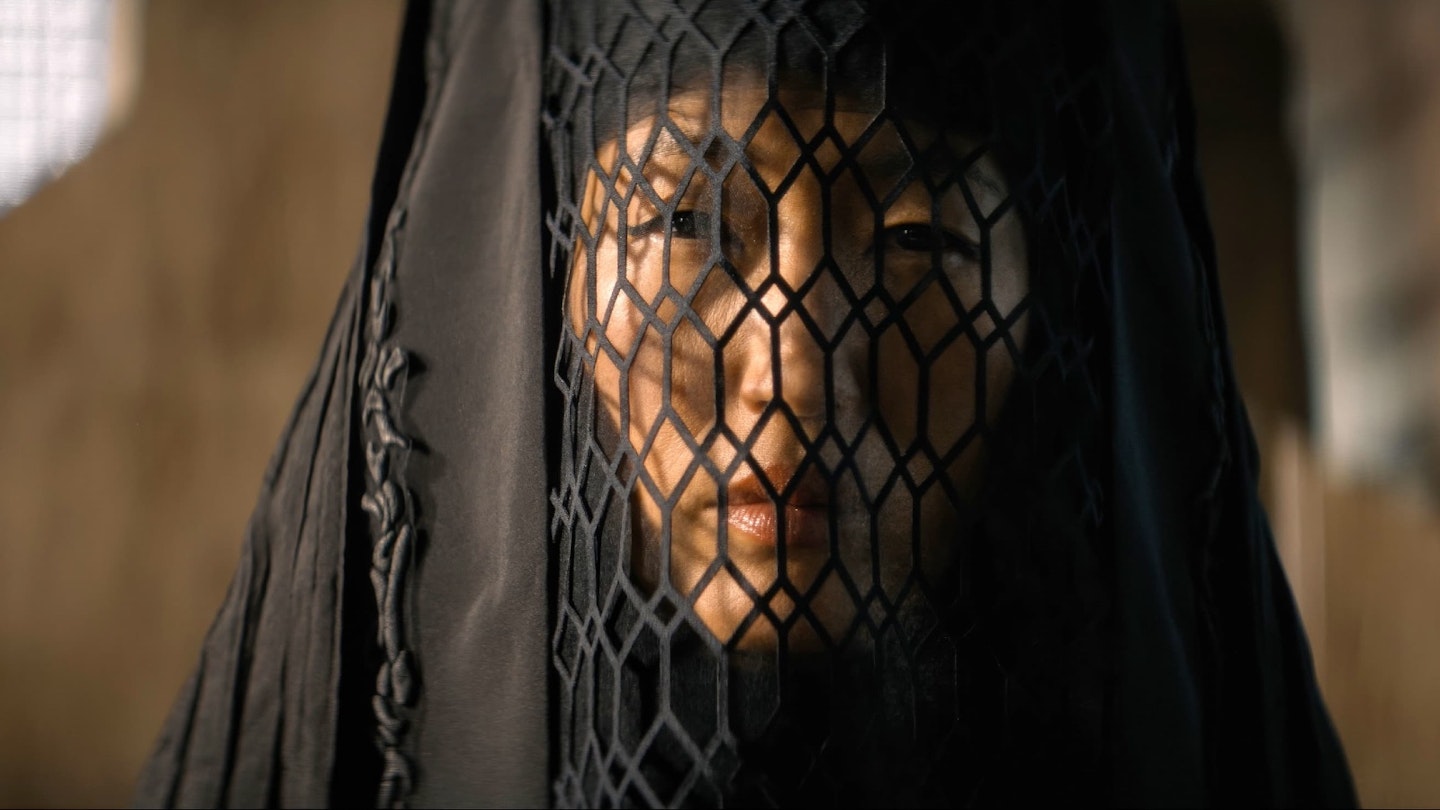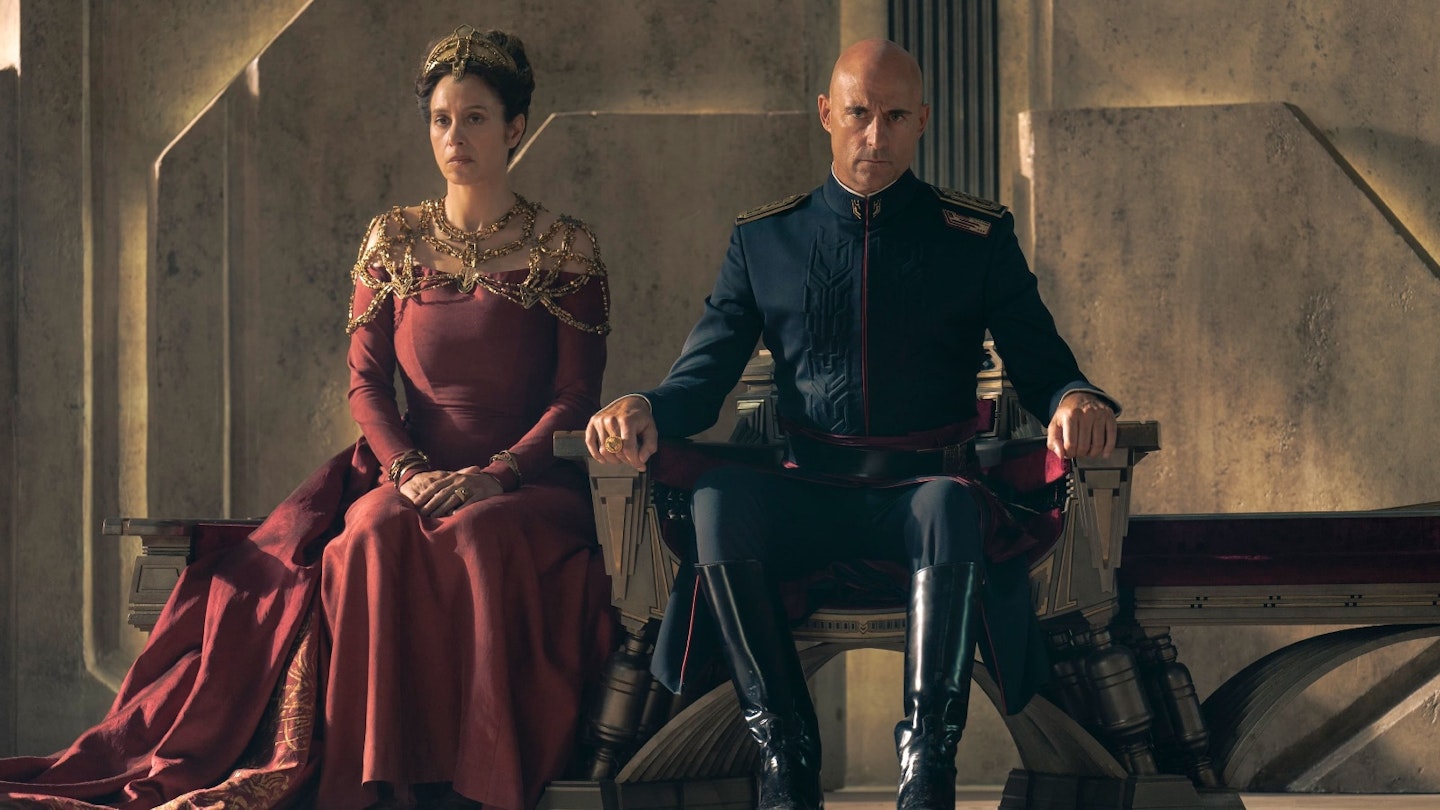Ten thousand years before Paul Atreides is born, Mother Superior Valya Harkonnen (Emily Watson) leads the Sisterhood into a perilous power struggle.
Streaming on: Sky / NOW
Episodes viewed: 4 of 6
Frank Herbert’s Dune has always proved fatally hard to adapt. It is material that tripped up filmmakers like David Lynch and Alejandro Jodorowsky; only Denis Villeneuve, with his superb 2021 and 2024 films, has had any luck. You can understand why. It is the hardest of hard sci-fi, the most operatic of space opera, and about as weird as it comes: giant worm-gods, royal incest, psychic mutants, elite lesbian soldiers known as ‘Fish Speakers’, and a musical-instrument planet known as Chusuk, to just scratch the surface.

Dune: Prophecy decides to stretch back into the lore. Loosely adapting the novel Sisterhood Of Dune by Herbert’s son Brian and Kevin J. Anderson, it focuses on the early days of the mysterious Sisterhood — later the Bene Gesserit — the puppet masters behind the entire Imperium. Having stalked the wings of Villeneuve’s films, the dark-cloaked sorcerers take centre-stage here; the result is a deeper dive into Dune, but one which stumbles almost as much as it soars.
There’s something to be said for the rarity of a huge HBO sci-fi show dominated by female characters
It begins in storming fashion. A Terminator-style prologue sets the scene, offering tantalising flashbacks to the Butlerian Jihad, the pivotal war between humans and thinking machines. It’s here that the ancient blood feud between the Harkonnens and the Atreides is established; a century after this war, that bitter rivalry becomes embodied by Valya Harkonnen, played by Emily Watson and Jessica Barden in flashbacks.

There is so much going on here. Valya is desperately trying to maintain power — over the Imperium, over the Sisterhood, and over her family name. Emperor Javicco Corrino (Mark Strong) is trying to maintain his own grip on power, while creepy, Rasputin-like soldier Desmond Hart (Travis Fimmel) quietly schemes to earn his ear. There is also a kind of Sisterhood Police Academy, with a school of fervent acolytes earning ‘truth-saying’ powers; a rebellious young Atreides (Chris Mason) with a Scouse accent; political assassinations; palace intrigue; AI techno-fear; at least two star-cross’d romances between rival houses — and visions of Shai-Hulud.
That’s a lot to pack into six episodes, and it doesn’t always feel clear what is driving the (space) ship, Herbert’s infamously knotty lore often feeling a bit tangly. To be fair, the show has the misfortune of following in the sandy footsteps of Villeneuve, who had a superbly economical approach to adaptation, not to mention being one of modern cinema’s masters of aesthetics and tones. As impressive as the visual scale is here, it’s simply not on the same level, an inevitable comparison (he was originally due to direct the pilot). But there’s something to be said for the rarity of a huge HBO sci-fi show dominated by female characters, and with storied actors like Watson and Olivia Williams out front, it’s enough to keep you coming back to the spice rack.
It’s a mixed start for this first Dune spin-off, which can’t entirely escape the shadow of Denis Villeneuve. But patience may be rewarded; the Bene Gesserit’s plans are measured in centuries, after all.
